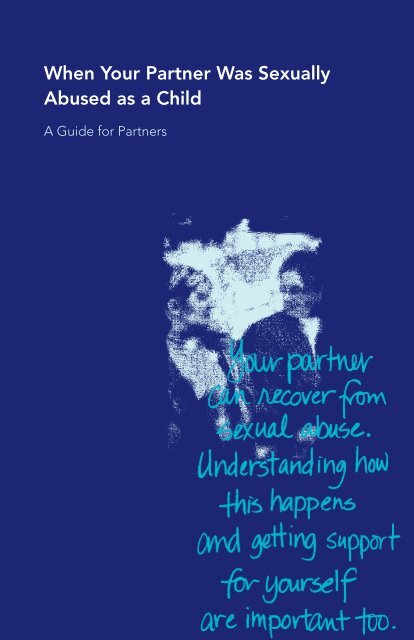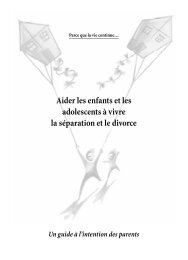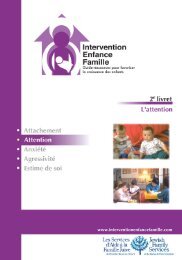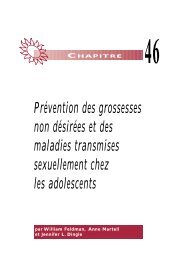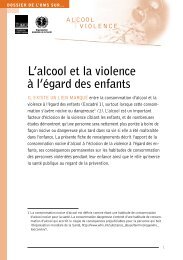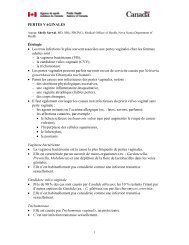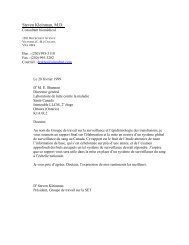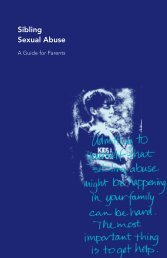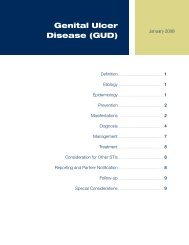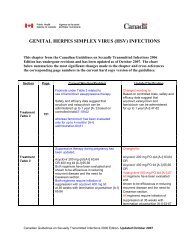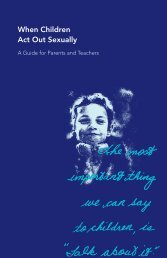When Your Partner Was Sexually Abused as a Child
When Your Partner Was Sexually Abused as a Child
When Your Partner Was Sexually Abused as a Child
You also want an ePaper? Increase the reach of your titles
YUMPU automatically turns print PDFs into web optimized ePapers that Google loves.
<strong>When</strong> <strong>Your</strong> <strong>Partner</strong> <strong>W<strong>as</strong></strong> <strong>Sexually</strong><br />
<strong>Abused</strong> <strong>as</strong> a <strong>Child</strong><br />
A Guide for <strong>Partner</strong>s
Sexual Abuse Information Series 2008<br />
This is one of ten booklets in the<br />
Sexual Abuse Information Series:<br />
SEXUAL ABUSE COUNSELLING<br />
A Guide for Parents and <strong>Child</strong>ren<br />
SEXUAL ABUSE WHAT HAPPENS WHEN<br />
YOU TELL A Guide for <strong>Child</strong>ren and Parents<br />
WHEN GIRLS HAVE BEEN SEXUALLY ABUSED<br />
A Guide for Young Girls<br />
WHEN BOYS HAVE BEEN SEXUALLY ABUSED<br />
A Guide for Young Boys<br />
WHEN TEENAGE GIRLS HAVE BEEN<br />
SEXUALLY ABUSED A Guide for Teenagers<br />
WHEN TEENAGE BOYS HAVE BEEN<br />
SEXUALLY ABUSED A Guide for Teenagers<br />
WHEN MALES HAVE BEEN SEXUALLY ABUSED<br />
AS CHILDREN A Guide for Men<br />
WHEN CHILDREN ACT OUT SEXUALLY<br />
A Guide for Parents and Teachers<br />
SIBLING SEXUAL ABUSE A Guide for Parents<br />
WHEN YOUR PARTNER WAS SEXUALLY<br />
ABUSED AS A CHILD A Guide for <strong>Partner</strong>s<br />
To order copies, ple<strong>as</strong>e contact:<br />
www.phac-<strong>as</strong>pc.gc.ca/nc-cn<br />
National Clearinghouse on Family Violence<br />
Public Health Agency of Canada<br />
200 Eglantine Driveway<br />
Tunney’s P<strong>as</strong>ture, 1909D<br />
Ottawa, ON K1A 0K9<br />
TEL: 1.800.267.1291 or 613.957.2938<br />
FAX: 1.613.941.8930<br />
TTY: 1.800.561.5643 or 613.952.6396<br />
E-MAIL: ncfv-cnivf@phac-<strong>as</strong>pc.gc.ca<br />
CREDITS<br />
Project Coordinator: Leonard Terhoch<br />
Writers: Louise Doyle & John Napier-Hemy<br />
Revisions: Christina Melnechuk & Louise Doyle<br />
Editors : Joanne Broatch & Liz Scully<br />
Design & Layout: Jager Design Inc.<br />
Également disponible en français sous<br />
le titre : Lorsque notre conjoint ou conjointe<br />
a été victime de violence sexuelle durant<br />
l’enfance. Guide à l’intention des conjoints<br />
Special thanks to the staff at VISAC and the National Clearinghouse on Family Violence and the<br />
many others who gave their ide<strong>as</strong> and support.<br />
The opinions expressed in this document are those of the authors and do not necessarily reflect<br />
the views of the Public Health Agency of Canada.<br />
VISAC (Vancouver Incest and Sexual Abuse Centre) is a program of Family Services of Greater<br />
Vancouver. VISAC offers a wide range of services including specialized victim support services,<br />
individual and group therapy for children, youth, families, and adults who have experienced<br />
childhood sexual abuse and/or trauma.<br />
Contents may not be commercially reproduced but any other reproduction, with acknowledgements,<br />
is encouraged. All other rights are reserved.<br />
© 2008 Family Services of Greater Vancouver – 1616 West 7th Avenue, Vancouver, B.C. V6J 1S5<br />
THIS PUBLICATION WAS MADE POSSIBLE THROUGH THE FINANCIAL SUPPORT OF THE<br />
PUBLIC HEALTH AGENCY OF CANADA.<br />
HP20-6/10-2007 ISBN 978-0-9809135-4-5<br />
<strong>When</strong> <strong>Your</strong> <strong>Partner</strong> <strong>W<strong>as</strong></strong> <strong>Sexually</strong><br />
<strong>Abused</strong> <strong>as</strong> a <strong>Child</strong><br />
A Guide for <strong>Partner</strong>s<br />
This booklet answers these questions:<br />
Why this booklet? 2<br />
What is child sexual abuse? 3<br />
Can my partner recover from sexual abuse? 4<br />
Do other partners react the way I am reacting? 6<br />
As the partner, what can I do to help? 8<br />
What about me? How can I look after<br />
my own needs? 9<br />
What if I w<strong>as</strong> sexually abused <strong>as</strong> a child myself? 12<br />
What is a partners’ support group and<br />
how can it help me? 13<br />
What if my partner and I are a same-sex couple? 13<br />
How will recovery affect our family? 14<br />
Is there life after recovery? 15<br />
A Guide for <strong>Partner</strong>s 1
Why this booklet?<br />
If you are in an intimate relationship with a person who w<strong>as</strong> sexually<br />
abused <strong>as</strong> a child or teen, this booklet is for you. The information can<br />
help you whether you’re male or female and whether you’re in a gay,<br />
lesbian, or heterosexual relationship. For the purposes of this booklet we<br />
will be using the female pronoun.<br />
You and your partner are not alone. At le<strong>as</strong>t one in four women and<br />
one in six men were sexually abused <strong>as</strong> children. As adults talk more<br />
openly about abuse and how it h<strong>as</strong> affected them, their partners will<br />
come to understand how the abuse impacts the relationship.<br />
Because sexual abuse affects emotional development, the<br />
following <strong>as</strong>pects of a relationship can be particularly diffi cult<br />
for both of you:<br />
Trust. A child experiences abuse <strong>as</strong> a betrayal of trust, especially if the<br />
abuser w<strong>as</strong> a person she cared about. As a result, your partner might<br />
have diffi culty in allowing herself to trust or in knowing who to trust.<br />
Power. A child who is sexually abused feels powerless. As an adult,<br />
your partner might feel powerless at times and unable to <strong>as</strong>sert<br />
herself. At other times she might try to control even the smallest<br />
detail to feel safe and more powerful.<br />
Intimacy. An abused child may be afraid to let anyone know her<br />
secret and too <strong>as</strong>hamed to let anyone get close. She learns how<br />
to behave <strong>as</strong> though everything is fi ne, while keeping her true<br />
thoughts and feelings hidden, even from herself. As an adult, that<br />
can make intimacy diffi cult.<br />
Sexuality. Sexual abuse interferes with normal sexual<br />
development. Instead of growing up to experience the body <strong>as</strong><br />
a source of ple<strong>as</strong>ure, your partner may have experienced it <strong>as</strong> a<br />
source of pain. She may think of sex <strong>as</strong> a form of control rather<br />
than an expression of love. As a result, she might withdraw from<br />
sex or use sex <strong>as</strong> a way to get power or affection.<br />
Although we offer a brief discussion, this booklet is not meant to explain<br />
child sexual abuse. Instead it focuses on the effects of abuse on your<br />
partner and on your relationship. We strongly encourage you to learn <strong>as</strong><br />
much <strong>as</strong> you can about how people recover from sexual abuse.<br />
In this booklet we also talk about how you might react during your<br />
partner’s recovery. Sometimes it’s hard not to get caught up in your<br />
partner’s issues. Try to fi nd support for yourself outside the relationship<br />
through a friend, counsellor, or support group. This will give you a chance<br />
to focus on your own feelings and thoughts.<br />
What is child sexual abuse?<br />
<strong>Child</strong> sexual abuse is the deliberate misuse of power over a child by an<br />
adult or an adolescent to gain sexual gratifi cation. The abuser’s power<br />
may come from being older, bigger or more sophisticated, or from being<br />
in a position of trust or authority over the child. The abuse may be in<br />
the form of inappropriate sexual remarks, fondling, and/or more violent<br />
<strong>as</strong>saults. Whether your partner’s experience involved belittling remarks,<br />
uncomfortable sexualized interaction, one-time sexual touching, or longterm<br />
abuse, it is important to consider the way in which your partner<br />
experienced and reacted to the abuse.<br />
As a person who experienced sexual abuse, your partner may have<br />
grown up <strong>as</strong>suming these things:<br />
You can’t trust people who are supposed to love and<br />
protect you.<br />
Attention and affection are almost always followed by<br />
sexual demands.<br />
You don’t have control over your body.<br />
Other people’s needs come ahead of your own.<br />
You’re in danger if you’re not in complete control.<br />
These are the b<strong>as</strong>ic legacies of incest or sexual abuse experiences and<br />
they can profoundly affect your partner’s adult relationships.<br />
2 WHEN YOUR PARTNER WAS SEXUALLY ABUSED AS A CHILD A Guide for <strong>Partner</strong>s 3
You may be unaware at the beginning of the relationship that your partner<br />
h<strong>as</strong> experienced sexual abuse. <strong>Your</strong> partner might not have told you<br />
because she w<strong>as</strong> afraid you would reject or not believe her. She might<br />
have felt too guilty and <strong>as</strong>hamed to talk about the abuse. She might have<br />
been telling herself the abuse h<strong>as</strong>n’t affected her. Whatever the re<strong>as</strong>on,<br />
it’s something that happened in her life that she w<strong>as</strong>n’t responsible for,<br />
but now profoundly affects both of you.<br />
Can my partner recover from sexual abuse?<br />
YES! <strong>Your</strong> partner can recover from sexual abuse. Recovery depends<br />
on the kind of abuse she experienced, <strong>as</strong> well <strong>as</strong> the kind of support she<br />
h<strong>as</strong>. There’s no “right” length of time or “right” way to recover, but most<br />
people go through the following three stages:<br />
The Crisis Stage<br />
“The beginning of this whole thing w<strong>as</strong> really hard. Annie didn’t<br />
sleep well any more and she w<strong>as</strong> having nightmares. After a while<br />
she seemed to resist going to bed so I went to bed alone. She’d stay<br />
up and read. Sometimes I’d wake up in the middle of the night alone<br />
and she’d be in the living room with all<br />
the lights on, wrapped up in a blanket. ”<br />
<strong>Your</strong> partner might be thrown into a crisis<br />
<strong>as</strong> she starts to look at what happened to<br />
her. Memories of the events might come in<br />
bits and pieces that may not make sense to<br />
her. As she struggles with these memories<br />
she might doubt the abuse happened and<br />
worry that she’s going crazy. But she isn’t.<br />
Her mind is letting information in little by<br />
little so she won’t be overwhelmed.<br />
If your partner h<strong>as</strong> always known about<br />
the abuse but h<strong>as</strong> had little or no feeling about it, she could experience a<br />
crisis when she starts to feel the emotional pain connected to the abuse.<br />
These feelings may seem overwhelming at fi rst. She might fi nd herself<br />
crying without knowing why. She might suddenly be afraid to be alone or<br />
withdraw from people. A counsellor can be helpful at this stage to help<br />
her learn skills to manage these thoughts and feelings.<br />
The crisis stage is e<strong>as</strong>ier to go through if you understand what’s happening.<br />
One way to fi nd out is to call a sexual <strong>as</strong>sault centre and talk to a counsellor.<br />
They can explain more about what your partner is going through and will<br />
give you some ide<strong>as</strong> on how to handle it.<br />
The Middle Stage<br />
“She kept digging into her p<strong>as</strong>t. I thought it would never stop. It<br />
w<strong>as</strong> <strong>as</strong> if she had to go back to all the important times and people in<br />
her life and look at them again and again. She had to see what her<br />
childhood w<strong>as</strong> really like; what her family<br />
w<strong>as</strong> really like.”<br />
<strong>When</strong> your partner decides to deal with the<br />
abuse, she’ll enter a stage of hard emotional<br />
work. She will struggle with details of the<br />
abuse, struggle to express her feelings about<br />
it, and to integrate the memories. This means<br />
she h<strong>as</strong> to acknowledge how deeply she h<strong>as</strong><br />
been affected by the abuse. She’ll experience<br />
emotional upheaval which may include grief<br />
and anger. However, she’ll probably be<br />
relieved, too, when some of her feelings and<br />
behaviours start to make sense to her.<br />
Although you might wish your partner<br />
would hurry and get on with recovery, she can<br />
do it only when she’s ready. If she’s worried<br />
about whether she can do it, encourage her to talk to a counsellor, or<br />
do some reading. If your partner is anxious about how it will affect your<br />
relationship, you could talk to a counsellor together about concerns and<br />
about what you might do to help.<br />
Don’t pressure your partner. The decisions along the way aren’t e<strong>as</strong>y<br />
and your partner must make them for her own re<strong>as</strong>ons, not to ple<strong>as</strong>e you.<br />
If you feel impatient or frustrated, talk to a counsellor or fi nd a support<br />
group for yourself.<br />
4 WHEN YOUR PARTNER WAS SEXUALLY ABUSED AS A CHILD A Guide for <strong>Partner</strong>s 5
Resolution<br />
“We’ve had quite a time, but it’s e<strong>as</strong>ier now. The abuse still comes up<br />
but it’s not the centre of her life or mine. And what a relief that is!”<br />
Through her efforts, your partner can recover. This doesn’t mean she’ll<br />
never think about the abuse again, nor does it mean everything is sorted<br />
out. However, it does mean she’ll be free to concentrate on what’s<br />
happening in her life now. <strong>When</strong> problems related to the abuse do come<br />
up, she’ll feel more confi dent about handling them.<br />
As a partner you’ll be involved and affected by every stage of the<br />
recovery process. Knowing how recovery works can help you support<br />
your partner without feeling overwhelmed.<br />
Do other partners react the way I am reacting?<br />
“I just can’t believe her big brother did all those things to her.<br />
I’ve played football with him. I’ve drunk beer with him, and we’ve<br />
swapped jokes. To me he just seems like a regular guy. Maybe<br />
somebody else did it, and she just imagines it w<strong>as</strong> her brother.”<br />
Disbelief is a common reaction to a sexual abuse disclosure. It’s hard<br />
to accept that the abuser might be someone you know or even like.<br />
Recent studies show that one out of four women and one out of six men<br />
experienced child sexual abuse. You may feel repelled by the thought<br />
that your partner h<strong>as</strong> been sexually abused,<br />
and you may want to deny it. <strong>Your</strong> belief will<br />
support her fi rst step towards healing. <strong>Your</strong><br />
denial, on the other hand, could incre<strong>as</strong>e her<br />
sense of shame and further lower her feelings<br />
of self-worth.<br />
“Okay, I believe it, but enough’s enough. If<br />
she would just put it <strong>as</strong>ide, and get on with<br />
her life, we’d both be better off. You can’t<br />
undo the p<strong>as</strong>t, and crying over spilled milk<br />
only makes things worse. We can both go<br />
ahead from here and have a wonderful life<br />
together.”<br />
Minimizing the abuse and its impact is tempting, but it doesn’t help.<br />
Remembering the abuse and telling you about it is only the fi rst step<br />
towards recovery for your partner. Now she needs to experience and<br />
make sense of her confl icting thoughts and<br />
feelings. To do this she’ll probably need help from<br />
a trained trauma counsellor. She’ll need patience,<br />
understanding and love from you.<br />
“Patience and understanding are one thing,<br />
but let’s get at the source of the problem and<br />
do something. Her father h<strong>as</strong> wrecked her<br />
life, and now he’s wrecking mine. I want to<br />
kill him.”<br />
<strong>Your</strong> anger at the abuser is understandable, but<br />
violence won’t help your partner. She needs to<br />
decide her own course of action. While she w<strong>as</strong><br />
being abused she w<strong>as</strong> powerless, and if you try<br />
to control the situation now, her power is being<br />
taken away again. With the help of a counsellor<br />
you can fi nd constructive ways for you to channel<br />
your anger.<br />
“Everything w<strong>as</strong> going fi ne until she watched<br />
that TV show. She w<strong>as</strong>n’t even thinking about<br />
sexual abuse until she saw all those other<br />
women talking about it. Now she won’t leave<br />
the subject alone.”<br />
You might feel angry at your partner for<br />
talking about the abuse, and then guilty for<br />
feeling angry.<br />
“I knew something w<strong>as</strong> wrong in our relationship, but I just couldn’t<br />
fi gure it out. Sometimes she didn’t want sex, and sometimes she<br />
did. She w<strong>as</strong> always upset and it seemed like we couldn’t just relax<br />
and enjoy ourselves. Then she started accusing me of having affairs<br />
if I even talked to another woman. And then she kept telling me I’d<br />
probably walk out on her. It w<strong>as</strong> driving me crazy. Thank god she<br />
started to deal with the abuse. All that behaviour is starting to make<br />
sense to me now.”<br />
You might feel relief after your partner starts talking about the sexual<br />
abuse. It helps you understand behaviours that may have baffl ed you for<br />
years. Problems with sexuality, intimacy, and trust can be the result of<br />
childhood sexual abuse.<br />
6 WHEN YOUR PARTNER WAS SEXUALLY ABUSED AS A CHILD A Guide for <strong>Partner</strong>s 7
“I’m glad she’s talking about it, and I’m glad I understand her<br />
behaviour a little better, but where does that leave me now? I don’t<br />
have a degree in psychology, and I’m afraid something I do or say<br />
could make things worse for her. And what if I touch her or do<br />
something in bed that really upsets her?”<br />
You might feel inadequate coping with some of the changes in your<br />
partner when she is on the road to recovery. Remind yourself that you<br />
are not the cause of these changes, and you shouldn’t take it personally<br />
when she is angry or doesn’t want to be<br />
touched.<br />
“Why am I in so much pain? She looks like the<br />
same person, and I’m still in love with her,<br />
but she seems so different. It’s like living with<br />
a stranger, and I really miss the old person.<br />
I know she’s getting better, but where does<br />
that leave me?”<br />
You might experience grief <strong>as</strong> you see your<br />
partner change. Remind yourself that she is the<br />
same person. Experiencing personal changes can<br />
be <strong>as</strong> exciting and stressful for you <strong>as</strong> it is for her.<br />
You have to trust and be patient with her healing<br />
process.<br />
As the partner, what can I do to help?<br />
Any loving relationship needs the ongoing support and understanding<br />
of both partners. However, to be the partner of someone who is dealing<br />
with child sexual abuse takes extra understanding and patience.<br />
Here’s what you can do to help:<br />
Believe your partner and resist the temptation to minimize<br />
the abuse.<br />
Listen to your partner. If the abuser w<strong>as</strong> a close relative, she<br />
may have positive feelings for her <strong>as</strong> well <strong>as</strong> angry feelings.<br />
She needs to be able to form her own opinions without your<br />
attempts to infl uence them.<br />
Support your partner’s plans to deal with the abuse, but don’t<br />
try to control what she does. <strong>Your</strong> partner h<strong>as</strong> to decide such<br />
things <strong>as</strong> whether to go into counselling, whether to join a<br />
support group, and whether to take some kind of action against<br />
the abuser. <strong>Your</strong> t<strong>as</strong>k is to support these important decisions<br />
whatever they might be. If you try to interfere, she’ll feel that<br />
once again someone is trying to control her life. If her family<br />
tries to infl uence what she does, you can help by supporting her<br />
decisions.<br />
Maintain a separate identity. You’ll help your partner if<br />
you focus on your own needs <strong>as</strong> well <strong>as</strong> hers. In any healthy<br />
relationship both partners make sure that their own needs are<br />
met. Whether one or both partners experienced sexual abuse,<br />
this b<strong>as</strong>ic principle still applies.<br />
Be a trusted friend. This means being there for your partner<br />
when she wants to talk, providing company when she wants it,<br />
and respecting her privacy when she wants it. It means being<br />
patient, especially when she wants to talk about the abuse or<br />
retell the story of her abuse.<br />
Cooperate with your partner’s requests around sexual<br />
activity. She may want to avoid sexual activity or even <strong>as</strong>k<br />
for temporary sexual abstinence. If she makes this request, it’s<br />
probably because sexual activity is triggering painful memories of<br />
sexual abuse. Temporary abstinence may seem diffi cult, but you<br />
can treat it <strong>as</strong> an opportunity to express your loving feelings with<br />
affectionate touching and non-sexual intimacy.<br />
What about me? How can I look after my own needs?<br />
Being the partner of someone who experienced sexual abuse can be both<br />
an ordeal and a rewarding experience. Greg’s story illustrates some of the<br />
things that can happen to you <strong>as</strong> your partner recovers:<br />
8 WHEN YOUR PARTNER WAS SEXUALLY ABUSED AS A CHILD A Guide for <strong>Partner</strong>s 9
Greg’s story<br />
<strong>When</strong> Greg met his wife, Linda, she w<strong>as</strong> in counselling because<br />
of sexual abuse by her grandfather. <strong>When</strong> they began a sexual<br />
relationship, Greg noticed that she resisted intimacy. She would<br />
always wear pyjam<strong>as</strong> to bed and never let him see her naked. Greg<br />
thought this meant that she w<strong>as</strong> modest. Linda owned a successful<br />
computer software business and Greg worked <strong>as</strong> a journeyman<br />
welder. He w<strong>as</strong> fl attered that a “professional” woman w<strong>as</strong> interested<br />
in a “working-cl<strong>as</strong>s” man like himself, and<br />
w<strong>as</strong> even more fl attered when she agreed<br />
to marry him.<br />
Linda told Greg about her grandfather<br />
after they were married. Greg<br />
supported her counselling and made a<br />
lot of aggressive comments about her<br />
grandfather. He saw himself <strong>as</strong> a “white<br />
knight” who had rescued her from an<br />
evil family.<br />
As Linda’s counselling progressed, the<br />
relationship deteriorated. Instead of<br />
becoming more comfortable with her<br />
body, she still wore pyjam<strong>as</strong> to bed, and<br />
frequently resisted Greg’s sexual overtures.<br />
<strong>When</strong> he persisted, she told him that he<br />
w<strong>as</strong> “a sex fi end“.<br />
Then Linda accused Greg of attempting to control her, of being a<br />
chauvinist, and of fl irting with other women. Eventually Greg lost<br />
patience. He told her to get on with her counselling so they could<br />
have a normal sex life. She accused him of emotional violence. In<br />
desperation Greg made an appointment to see a counsellor himself.<br />
The counsellor <strong>as</strong>ked Greg to look at some of the <strong>as</strong>sumptions he<br />
had made about Linda. Greg found that Linda’s “modesty” w<strong>as</strong>, in<br />
fact, a reaction to being sexually abused by her grandfather. The<br />
counsellor also helped Greg separate what w<strong>as</strong> true about Linda’s<br />
accusations, from her perceptions of him that were distorted by the<br />
abuse. He had to acknowledge, for example, that his aggressive<br />
“white knight” approach w<strong>as</strong> chauvinistic and controlling, and that<br />
Linda’s perception of him <strong>as</strong> a “sex fi end” w<strong>as</strong>n’t valid.<br />
The counsellor also helped Greg see that he had idealized Linda <strong>as</strong> a<br />
middle-cl<strong>as</strong>s achiever who had done him a favour by marrying him, and<br />
that this w<strong>as</strong> quite unrealistic. This in turn led Greg to see how his selfesteem<br />
had been impacted by his own upbringing. In the end, he w<strong>as</strong><br />
able to be more supportive of Linda because he had a better sense of<br />
his own self-worth.<br />
He learned not to <strong>as</strong>sume that he w<strong>as</strong> automatically wrong when Linda<br />
attacked him. As Greg became more realistic about her, he gave up<br />
playing the “white knight”. <strong>When</strong> Linda felt more in control of her<br />
recovery, she stopped her verbal attacks. Greg also learned how to<br />
build greater non-sexual intimacy into their relationship. They both<br />
benefi ted in many ways from counselling.<br />
Greg’s story contains several important principles for a healthy<br />
relationship. They are:<br />
Recognize and <strong>as</strong>sert your own needs. Respect your own<br />
boundaries and set limits if your partner’s behaviour becomes<br />
abusive. If you frequently place your partner’s needs ahead<br />
of your own, it is not healthy and may stand in the way of her<br />
recovery and your own emotional well-being.<br />
Look at the role you played in your own family. If you were<br />
the one who “took care of everything” in your family, you run the<br />
risk of carrying that role into your relationship. It may feel good<br />
but it isn’t healthy.<br />
Make sure that you have support outside your intimate<br />
partner relationship. This support may be a counsellor, a friend,<br />
a support group, or all three.<br />
Enjoy your relationship for what it really is, and try not to<br />
make it conform to some idealized model. <strong>Your</strong> own family may<br />
have created a false picture of what family life is, and the media<br />
often contributes to unrealistic expectations of what family life<br />
looks like.<br />
10 WHEN YOUR PARTNER WAS SEXUALLY ABUSED AS A CHILD A Guide for <strong>Partner</strong>s 11
What if I w<strong>as</strong> sexually abused <strong>as</strong> a child myself?<br />
Jill’s story<br />
Both my parents drank a lot. As the oldest kid, I took care of<br />
everyone in my family. I did what I w<strong>as</strong> supposed to and never <strong>as</strong>ked<br />
for anything. I felt invisible. After I fi nished school, I fell madly in love<br />
with Jack. No one had ever wanted me like he did. After a wonderful<br />
year together Jack began to remember being sexually abused <strong>as</strong> a<br />
child. I tried to help but I w<strong>as</strong> angry. It seemed unfair that I’d fi nally<br />
found someone who loved me and now we had to deal with this big<br />
issue.<br />
His family tried to be supportive but I w<strong>as</strong> the only one he talked<br />
to about the abuse. Listening to him exhausted me and after six<br />
months, I w<strong>as</strong> completely drained. Then my own sexual abuse<br />
experiences started to surface.<br />
I w<strong>as</strong> frightened, knowing how much support Jack had needed. I<br />
wondered who w<strong>as</strong> going to take care of me the way I w<strong>as</strong> taking<br />
care of him. Certainly not my family! I felt like Humpty Dumpty, about<br />
to fall apart with no one to put me together again. I couldn’t tell<br />
anyone. I kept it all inside. I w<strong>as</strong> sick all the time. Finally I had to tell<br />
my doctor and she w<strong>as</strong> great. She helped me get the support and<br />
counselling I needed, and I started to feel better.<br />
I began to see how hard the l<strong>as</strong>t year had been. I had managed<br />
without <strong>as</strong>king for help, because that’s what I had to do <strong>as</strong> a kid. No<br />
one ever cared about how I w<strong>as</strong> doing and I thought that’s how it<br />
always had to be. Now I know it isn’t. I’ve had help from my doctor,<br />
my counsellor, my friends and my partner. It w<strong>as</strong> a relief to tell Jack<br />
about it and he w<strong>as</strong> shocked to realize I had the same needs he had. I<br />
guess we’d been going along almost like a parent and child. Now I’ve<br />
learned how to <strong>as</strong>k for support and he’s learned he h<strong>as</strong> something to<br />
give me.<br />
If your partner’s recovery process h<strong>as</strong> reminded you of your own sexual<br />
abuse, you might have these reactions: anger that coping with your<br />
partner’s recovery h<strong>as</strong> triggered your own abuse experiences; fear that<br />
you can’t continue to support your partner in the same way; and panic at<br />
the thought of going through what your partner h<strong>as</strong> gone through.<br />
If you tell yourself your abuse w<strong>as</strong> less serious and your needs can wait,<br />
you’ll create a major problem in your relationship. <strong>Your</strong> partner’s recovery<br />
could take time and you’ll become angry and resentful if you put your<br />
own needs on hold. Remember, your fi rst responsibility is to yourself. If<br />
you don’t take care of yourself, you can’t support your partner or the<br />
relationship.<br />
In recovering from the trauma of sexual<br />
abuse, you’ll both have to take turns giving<br />
and receiving support. Also you’ll both need<br />
support outside of the relationship, from<br />
friends, a counsellor, or a support group.<br />
What is a partners’ support group<br />
and how can it help me?<br />
A support group is made up of partners of adults<br />
who experienced sexual abuse <strong>as</strong> a child. Most<br />
groups meet once a week and the purpose is to<br />
help each other through diffi cult times.<br />
People will probably talk about what h<strong>as</strong><br />
happened during the week and about their<br />
problems, frustrations and successes. You don’t<br />
have to talk if you don’t want to, and everything<br />
that is said in the group should be confi dential.<br />
You’ll have a chance to express your feelings and frustrations and to<br />
learn from what other people have to say. You will be encouraged when<br />
you hear from group members who are further along in the process. In<br />
a partners’ support group you don’t have to worry about your partner’s<br />
reactions to what you say and you will be with people who understand<br />
what you’re talking about.<br />
To fi nd out whether there are partners’ groups in your community,<br />
contact a sexual <strong>as</strong>sault centre or counselling centre.<br />
What if my partner and I are a same-sex couple?<br />
If you and your partner are the same sex, the issues are similar: the recovery<br />
process is similar and the principles for supporting your partner are the<br />
same. If your family and friends are not supportive of your relationship,<br />
this can be an added stress.<br />
12 WHEN YOUR PARTNER WAS SEXUALLY ABUSED AS A CHILD A Guide for <strong>Partner</strong>s 13
How will recovery affect our family?<br />
Parenting<br />
<strong>Your</strong> children might suffer at fi rst from your partner’s recovery. They<br />
will probably sense the stress, and wonder whether they are causing it.<br />
You can help your children by explaining to them that their mom and/or<br />
dad is upset by childhood memories that make them sad or angry, and<br />
that those feelings sometimes make them impatient and cranky. Keep<br />
the explanation short and simple, and re<strong>as</strong>sure them that they’re not<br />
responsible for their parents’ feelings.<br />
<strong>Your</strong> partner could be under additional stress if, when she w<strong>as</strong><br />
abused, she w<strong>as</strong> the same age <strong>as</strong> one of your children. Be aware of this<br />
possible connection, but don’t share this with your children <strong>as</strong> it may be<br />
very confusing to them.<br />
If your partner is putting a lot of effort into recovery, and is feeling<br />
exhausted, you can help by taking on extra responsibility for the children.<br />
Plan to have fun with them while you give your partner time to rest.<br />
Extended Family<br />
<strong>Your</strong> partner’s recovery will affect the way you<br />
relate to her family, especially if the abuser<br />
w<strong>as</strong> a family member. If the family failed<br />
to protect her in the p<strong>as</strong>t, or disbelieves<br />
her now, they’ll probably want her to keep<br />
quiet about it. <strong>Your</strong> t<strong>as</strong>k is to support her,<br />
especially if they pressure her to retract the<br />
story.<br />
If your partner w<strong>as</strong> abused by a family<br />
member, other family members may have<br />
been abused <strong>as</strong> well. <strong>When</strong> your partner<br />
discloses her sexual abuse to one family<br />
member, there could be a “snow-ball” effect<br />
with several family members disclosing their<br />
abuse <strong>as</strong> well. If your partner’s grandfather<br />
w<strong>as</strong> an abuser, for example, and the family secret is that he had abused<br />
several of his own children, your partner’s disclosure could set the stage<br />
for disclosures by several family members, including her own parent.<br />
Whether your partner tells her family about the abuse or not should<br />
be entirely her choice. It depends on a number of circumstances, but<br />
both of you should be aware of how her family might react. <strong>Your</strong> role is<br />
to support your partner, whatever her choices may be, not to rescue her<br />
or avenge the abuse.<br />
You’ll also have to decide whether or not to tell your own family about<br />
your partner’s abuse. To make that choice, you’ll have to <strong>as</strong>k your partner<br />
whether she wants you to talk about it. Then you’ll have to think about the<br />
impact this will have on your family. If you think they’ll support both you<br />
and your partner, tell them. If you think they’ll respond in a negative way,<br />
don’t.<br />
Is there life after recovery?<br />
YES! All relationships have periods when one or both partners have<br />
problems. What makes a difference is whether you talk about and work<br />
on the problems together. The abuse might affect a relationship right from<br />
the start, even when you know nothing about it. <strong>When</strong> you fi nd out about<br />
the abuse, then you know what you’re dealing with and have a better<br />
chance of solving the problems <strong>as</strong> they come up.<br />
The communication and support you develop while you do this will<br />
establish a sense of trust so that you’ll be able to talk safely about even<br />
the most sensitive, vulnerable issues. That’s a sound foundation for any<br />
relationship.<br />
For life after recovery, remind yourself of these guidelines:<br />
Continue to communicate your love.<br />
Be caring in your actions.<br />
Be aware of your own needs and limits.<br />
Communicate your needs and limits to your partner.<br />
Spend time with each other that is not focussed on the<br />
sexual abuse.<br />
Enjoy each other’s company and remember why you<br />
chose to be together in the fi rst place.<br />
14 WHEN YOUR PARTNER WAS SEXUALLY ABUSED AS A CHILD A Guide for <strong>Partner</strong>s 15
Additional resources are available at your community resource centre,<br />
your local library or the National Clearinghouse on Family Violence.<br />
16 WHEN YOUR PARTNER WAS SEXUALLY ABUSED AS A CHILD


